Year 1 / 2 - Ash, Elm and Willow Class
Year 1 / 2
Meet the teacher PowerPoints:
Ash: Meet the Teacher: Ash Class
Elm: Meet the Teacher: Elm Class
Willow: Meet the Teacher: Willow Class
Classes information
ASH CLASS
Mrs Cooper - Monday - Tuesday
Miss Millard -Wednesday - Friday
PPA Cover - Mrs Coldwell
Class email: ash@stnicholaschantryschool.org.uk
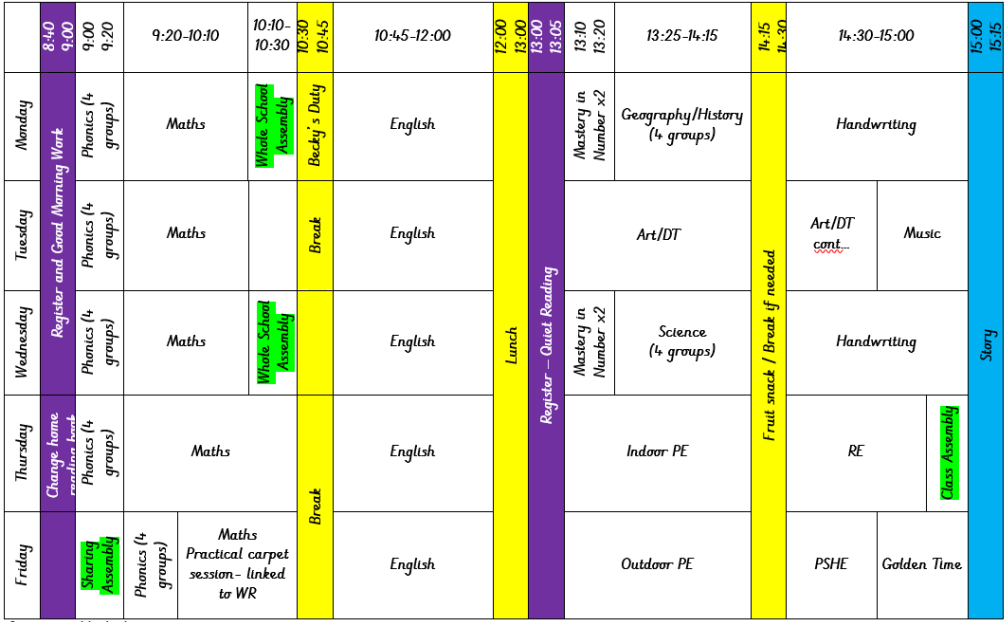
ELM CLASS
Mrs Steele - Monday - Friday
PPA Cover - Miss Van De Velde
Class email: elm@stnicholaschantryschool.org.uk
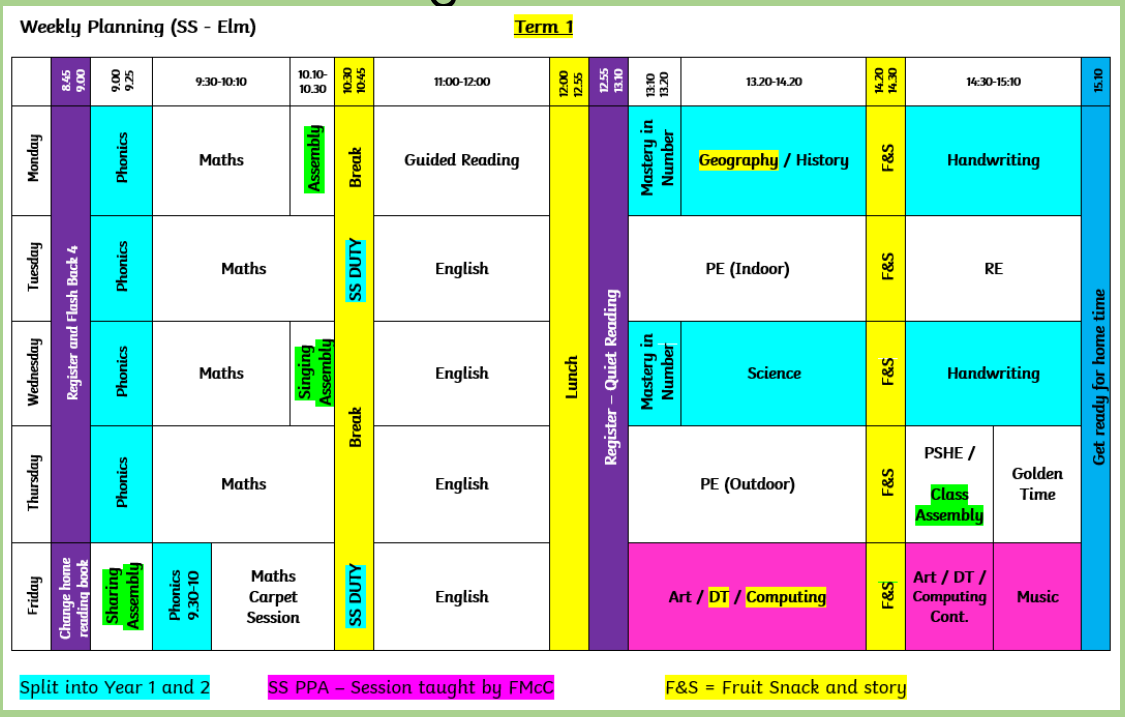
Willow Class
Mrs Keate - Monday - Wednesday
Mrs court - Thursday - Friday
PPA Cover - Mrs Coldwell and Miss Van De Velde
Class email: willow@stnicholaschantryschool.org.uk
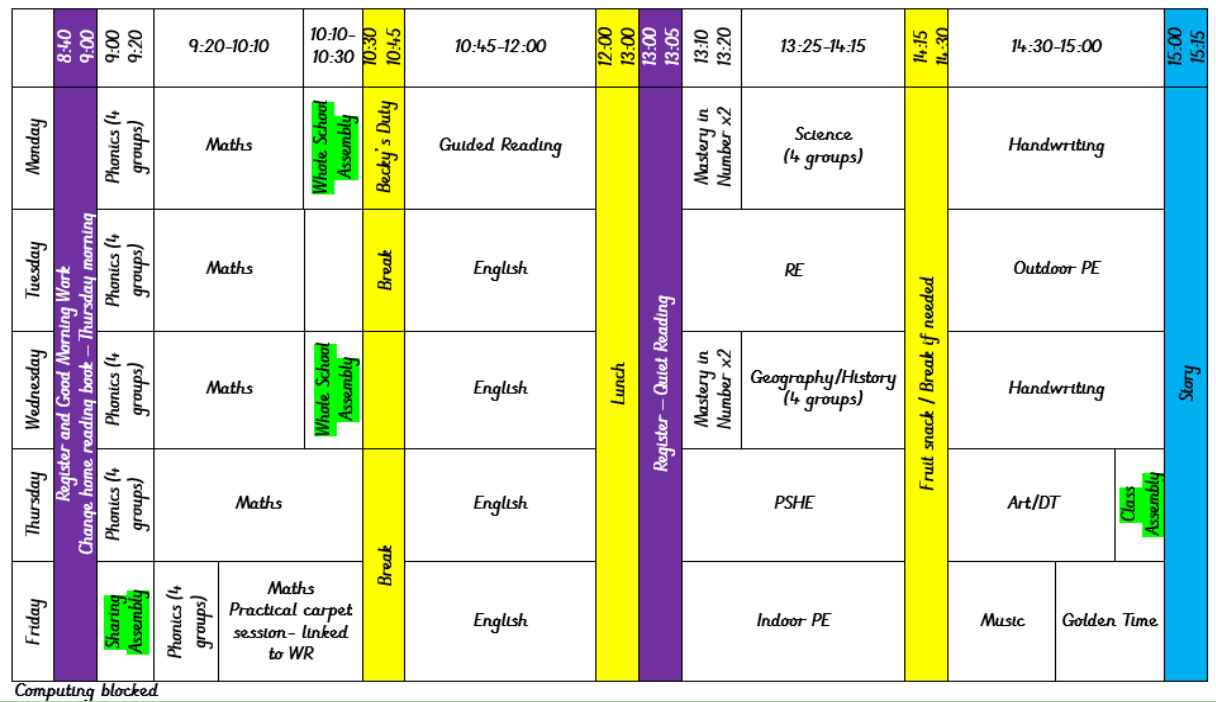
KS1 teachers are available to talk to about any issue or concern that you may have throughout the year. We will be present in the playground or contactable on email.
The School Day
The school day starts at 8.40am. As your child arrives on the school site they will come through the gate to the top playground where they will be greeted by a member of the school team. Willow class will then enter the school through the doors to the old hall and Ash and Elm class to enter near the office steps. Your child's class teacher will greet them as they arrive at their classrooms.
The school day finishes at 3.15pm. Year 1 / 2 classes will be led out onto the playground by their class teacher who will then hand each child over to the adult collecting them. The children in Willow class will be dismissed via the steps that lead down from the Old Hall and children from Ash and Elm class will be dismissed from the steps near the office.
Please give us 24 hours notice if your child is to be collected by someone who does not normally collect them.
Learning Focus for the Term
Term 3:
English - 'Leaf' by Sandra Diechmann
Geography - Contrasting locality - Australia
Science - Seasonal changes
DT - Textiles
PSHE - Dreams and Goals
Computing: Creating digital media
RE - Ho do people celebrate the important events in their life?
PE: Sending and receiving (outdoor) Dance (Indoor)
Knowledge Organisers and Helpful Websites
Geography: Contrasting locality with Australia
Science: Seasonal changes
DT: Textiles
PSHE : Dreams and Goals
Computing: Creating digital media
Newsletters
KS1 Term 3 NewsletterBook Bags
Children need to have their book bags with them every day, which includes their reading book and reading record book.
On a Thursday children will change their reading books with the class teacher along with Library books.
Parent Helpers
We welcome the help of parents across KS1 so please let us know if you are interested in helping in KS1. Most parents come in to hear children read across KS1 and parent helpers are not attached to their child's class. You will need to go through a safeguarding process before you would be able to start with us but this is usually a fairly quick process and our office team can get this started for you.
Reading and Phonics
Reading is one of the most important things we can teach our children. We want all our children to be avid readers with a love for all different types of literature.
As children start their school life they will very much focus on learning to read. As they move higher up the school and into secondary education and beyond they will be reading to learn. So it is vitally important that we support our youngest pupils to quickly learn to read. We want every child to love reading and to do this we must make sure that it is a pleasurable experience and that they can read with accuracy and fluency so they can access as many opportunities as possible.
We follow the Unlocking Letters and Sounds (ULS) scheme. Your child will take part in daily whole class phonics lessons / SPAG.
We use ULS assessment tracker to monitor your child's progress with phonics and your child will be given reading books at the correct level for their phonic knowledge. The children should be able to read these books with at least 90% accuracy. Your child's reading books will be changed in school every Thursday - please record their reading at home in the Reading Log.
We can't stress enough the importance of children practicing their reading with an adult at least 3 times a week. If your child finishes a book, please encourage your child to re-read the book to help increase their fluency and comprehension. Please log all reads in your child's reading record for a chance of winning a Recommended read during Celebration assembly.
Phonics workshop with voice over
Example reading questions for KS1 VIPERS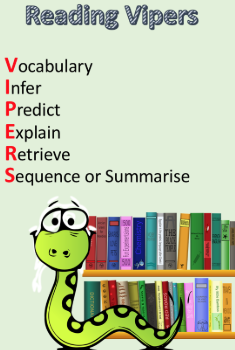
As well as your child reading to you, it is important you also take time to read to your child. Please see the recommended reads below as a guide to books a Year 1 and Year 2 child will enjoy having shared with them.
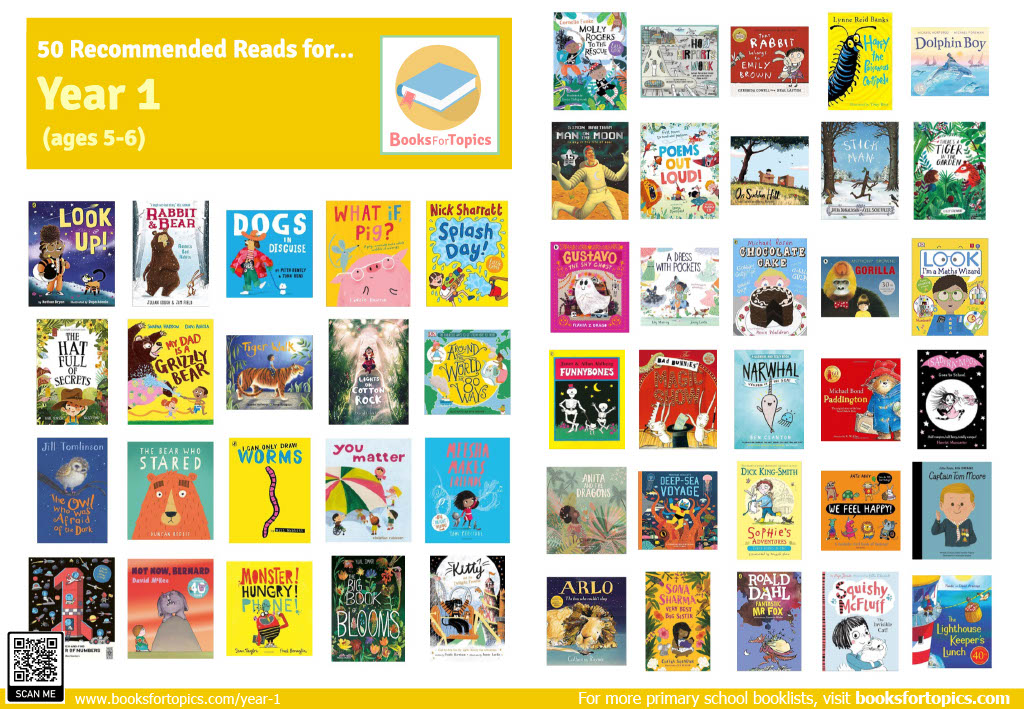
Please click on the link below to visit the Books for Topics Y1 Recommended Reads webpage:
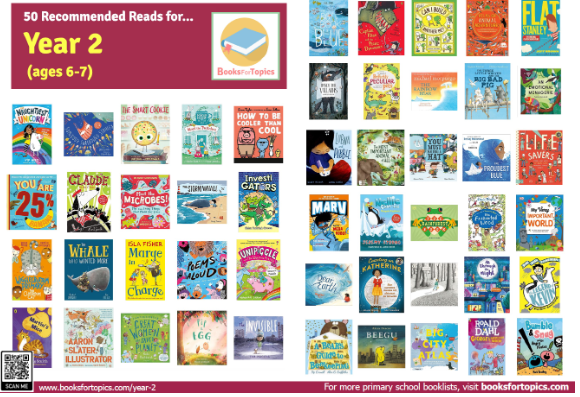
Termly Phonics Overviews
This overview will show you what your child will be learning in their phonics lessons each week. This overview is useful to refer to when practicing the spellings as you will be able to see which graphemes have been the new learning for your child.
Term 3 Phonics overview: Year 1Optional Spelling Home Learning
Across the school, children will be provided with a list of spellings that link to the spelling work they are doing within their year group. You can choose to practice some or all of the words with your child each week at home.
When supporting your child please encourage your child to use their phonic knowledge e.g. play contains the phonemes p l ay. The Common Exception Words will contain exceptions to the current phonic rules your child knows e.g. in "said" they will know the phonemes for the graphemes "s" and "d" but the exception will be the grapheme "ai" making the phoneme "e".
Here is a "look, cover, write, check" template that you might like to use at home look say cover write check template
ULS Phonics Resources
Letters and Sounds have produced this short video to help parents and carers know how to pronounce the phonemes.
Phoneme video guide
Common Exception Words
These are the Common Exception Words (CEWs) that children are expected to be able to read and spell by the end of Year 1. A Common Exception Word is a word which does not follow the common phonetic spelling rules of the language, or where the usual rules act in an unusual way.
These are the year 2 common exception words:
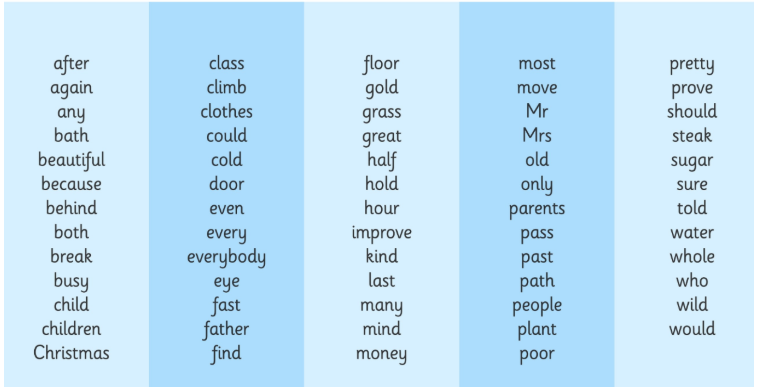
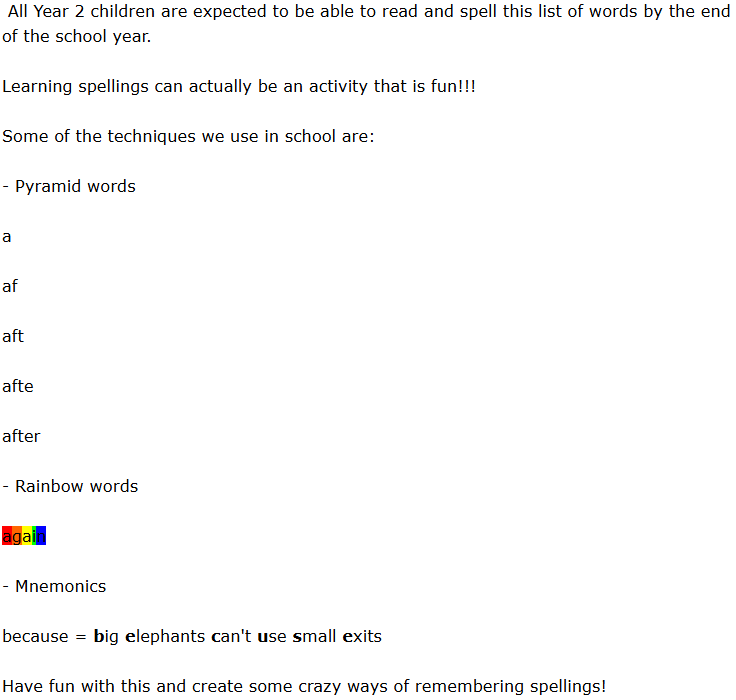
Handwriting
Good handwriting is critical to children’s writing progress so alongside the learning children take part in in phonics children will also practice letter formation in short handwriting sessions. We are using the ULS handwriting scheme to deliver our handwriting sessions which take place twice a week for roughly 10 minutes. They have produced a guide to the way in which letters should be formed and this includes a patter to help children remember how to correctly form each letter.
Lower Case letter pattersDuring our handwriting sessions and every time we write we are also helping the children to sit correctly at the table and hold their pencil in the correct way.
ULS have also produced patters to help children form their numbers correctly, which we use in school with your children too.
Year 2 children will begin to be taught cursive handwriting towards the end of the school year.

Maths Home Learning
Our class based maths learning follows the White Rose scheme. White Rose have also produced home learning videos that run alongside the work we cover in class. By using some of these videos at home with your child you can help to reinforce the learning they are experiencing in class.
Homework in KS1 is non-statutory and so we do not need you to provide evidence of any work completed at home.

